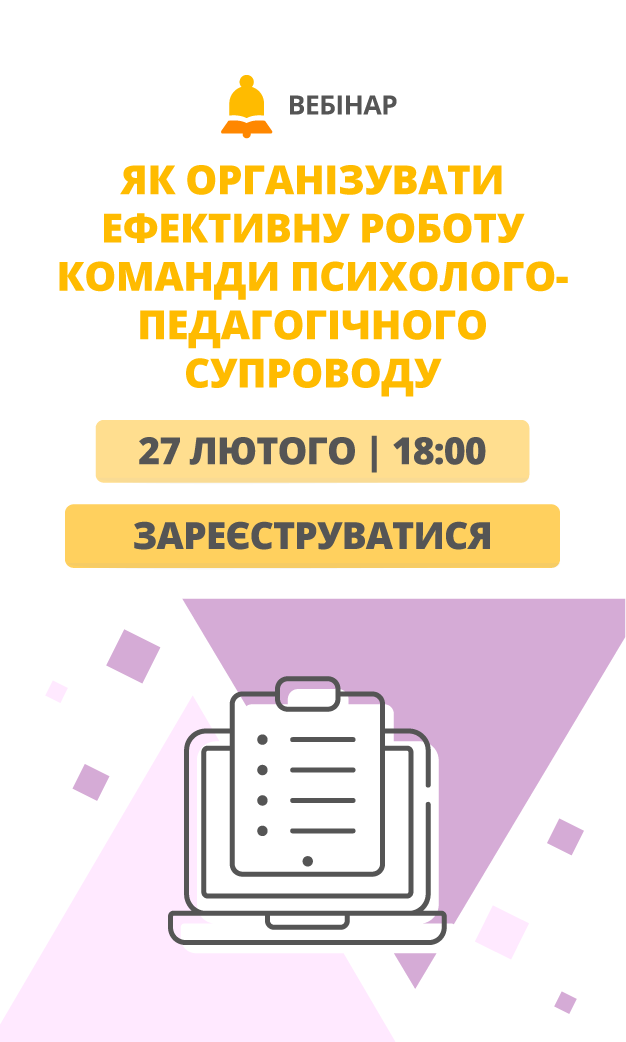Використання відеоматеріалів на уроках англійської мови
Використання відео на уроках англійської мови підвищує мотивацію учнів до навчання, сприяє ефективності навчального процесу, формуванню пізнавальних інтересів, стимулює розумову діяльність.
|
|
Використання відеоматеріалів на уроках англійської мови
Рейкіна Олеся Іванівна
Вчитель англійської мови КЗ «Луцький навчально-виховний комплекс «Гімназія №14 імені Василя Сухомлинського» Луцької міської ради Волинської області
|
Останнім часом із зростанням інтересу до вивчення іноземних мов з’являється багато відеоматеріалів, які дають можливість використовувати їх у навчальному процесі. Перегляд фрагментів відеозаписів спонукає до дії зорові та слухові центри людини, які, у свою чергу, впливають на процес засвоєння та запам’ятовування матеріалу. Робота з такими матеріалами на уроці урізноманітнює види діяльності учнів у процесі навчання іноземній мові. Аудіо- та відеоматеріали роблять урок цікавим, підвищують рівень мотивації вивчення англійської мови, дають можливість працювати з автентичними зразками іноземної мови. Тому підготовка сучасного вчителя до використання відеоматеріалів на уроці англійської мови визнається не просто доцільною, а й необхідною.
Процес вивчення іноземних мов сьогодні неможливо уявити без використання технічних засобів. І не випадково останнім часом помітно зростає інтерес до навчальних відеофільмів як ефективного засобу навчання іноземної мови. Специфіка відео дозволяє поєднати зорові та слухові образи в типових обставинах. Учням пропонується мовленнєва ситуація, у якій вони за допомогою вчителя можуть опинитися в ролі активних учасників комунікації. Ефективності цього засобу навчання іноземної мови сприяють також технічні можливості відео, які дозволяють зупиняти та повторювати дію будь-яку кількість разів в абсолютно однакових умовах. Навчальні відеофільми є простою, доступною і цікавою формою викладу нового навчального матеріалу. Використання відео сприяє підвищенню інтересу до дисципліни, кращому засвоєнню, запам’ятовуванню матеріалу, що вивчається. Як засіб навчання воно має безмежні педагогічні й виражальні можливо
Отже, використання відео на уроках англійської мови підвищує мотивацію учнів до навчання, сприяє ефективності навчального процесу, формуванню пізнавальних інтересів, стимулює розумову діяльність.
-1-
Lesson ‘Healthy and unhealthy food’
Teacher: Reykina Olesya
Topic: Food
Subtopic: Healthy and unhealthy food.
Objectives:
- to use the vocabulary from the topic “Food”;
- to read and understand the poem “Spaghetti!”;
- to speak about your favourite dish, healthy and unhealthy food;
- to train the grammar material “Countable and uncountable nouns”;
- to listen and complete the dialogues;
- to watch, listen the information about eating habits of celebrities and do the tasks;
- to read and understand text “different kinds of food” do the post reading tasks;
Materials: SB “Enterprise 2”, CD-player, HO1, HO2, video-CD, projector.
Sites: m.busyteacher.org.>.
www.eslgamesplus.com>videos>food;
learnenglish.britishcouncile.org./en/grammar:countable/uncountable nouns;
The food song(clip) –kids+children.Learn English songs – You-Tube;
frenglish.ru>enterprise.
Procedure
Beginning of the lesson.
Greeting:
T : Good afternoon, children! I’m glad to see you. I’m hungry today. I was very busy this morning.
P: It’s lunch time now.
T: What is lunch?
P: Lunch is a very quick meal.
T: Where can we have lunch?
P: We can have lunch in a bar, café, pub.
T: What can we eat there?
P: Fast food.
T: What exactly do you mean fast food?
P: It’s a pizza, chips, a cake, a hot dog, sandwiches.
T: Are they really tasty?
P: They are very tasty.
T: Have you tried them?
P: We tried them a lot of .
T: So, look at the topic of the lesson and tell me, what will we talk today at the lesson.
-2-
“Eat to live, but not live to eat”.
Aims: So, let’s speak about healthy and unhealthy food. Today at the lesson you’ll read the poem “Spaghetti”; you’ll train in grammar material a/an/ some/ any/ a few, a little;
you’ll complete and role-play dialogues; you’ll speak about your favourite food;
you’ll watch a video and discuss it, you’ll sing a song “ I like to eat apples and bananas’ and you’ll read a text about fast-food restaurant.
Warm-up: Teacher: Look at the screen and read the poem “Spaghetti”.
m.busyteacher.org.>.
Spaghetti!
Spaghetti! Spaghetti!
You’re wonderful stuff,
I love you spaghetti,
I can’t get enough.
You’re covered with sauce
And you’re sprinkled with cheese,
Spaghetti! Spaghetti!
Oh, give me some, please.
Speaking: Teacher: At previous lesson we spoke about different types of food. I asked
some pupils to prepare projects about healthy and unhealthy food. So, please, listen to
your classmates.
Pupil 1: The hamburger is not typical American food. The favourite American fast food
actually comes from many different countries. The idea of chopping meat comes from
Turkey. The name hamburger comes from the town Hamburg in Germany.
Pickled cucumber comes from Poland, Ukraine, Russia. The word ketchup came
from China. The bun is a kind of bread came from England. The sesame seeds on the
top came from Middle east.
Pupil 2: Very few people know that a very rich Englishman invented a sandwich . He liked playing cards very much. He could spend the whole day and night playing cards.
When he was hungry he didn’t want to stop a game. He took a piece of meat and put it between two slices of bread.
In that way it was easier for him to eat and play at the same time. The name of this Englishman was Sandwich. In 1762 rich people in restaurants started eating sandwiches. Today almost every office worker in Great Britain has a sandwich for lunch.
-3-
Pupil 3: Most people know what hot dog is. It’s a sausage in a roll. People ate a lot of sausages during baseball matches. One man had an idea! He put sausage in long hot bread rolls. It made them easier to eat. In 1906 one newspaper published a cartoon in which there was a long dog in a roll instead of sausage. People started to call rolls with sausages hot dogs.
Pupil 4: There are many ways to be healthy. One of them is eating healthy food. Eating fresh fruit and vegetables can reduce your chance of getting cancer, diabetes and heart diseases. Eat wholemeal bread. It is important to eat green and orange vegetables like spinach and carrots every day. Fresh fruit like apples and oranges are the best. Low-fat meat like turkey and chicken are good to eat. Don’t eat sweets and cakes. Always drink freshly-squeezed juice. Follow my advices and you’ll be healthy.
Vocabulary practice: Teacher: Look at the board. There are two baskets on it. One you have to feel with healthy food another one - with unhealthy food. Take a shirt of paper with the name of the food and stick to the right basket.


1) Carrot juice 11) Chocolate
2) Hamburger 12) Fruit salad
3) Beer 13) Sugar
4) Cereal 14) Apple
5) Grapes 15) Wholemeal bread
6) Crisps 16) Nuts
7) Sweets 17) Mayonnaise
8) Yoghurt 18) Pizza
9) Doughnut 19) Hot dog
10) Watermelon 20) Сheeseburger
www. eslgamesplus.com>videos>food
Grammar practice: Teacher: Let’s repeat grammar material “Countable and uncountable nouns”. Open your books at p. 42 and find the exercise 13. fill in some/an/much/many/
a few/a little. Then act out similar dialogues using the prompts below.
- Spanish omelette: eggs, onion, cheese, milk, ham.
- Pizza: mushrooms, tomatoes, ham, butter, cheese.
-4-
A: Have we got what we need for the cheeseburgers?
B: Let me see. Well, there are 1)…….burgers, but there aren’t 2)…….rolls at all.
A: How 3)……..rolls do you need?
B: Just 4) ……. . I need 5)………cheese.
A: How 6)……..cheese is there in the fridge?
B: Not 7)………., but I only need 8)……… .
A: Is there 9)……..ketchup left?
B: Only 10)………., but we don’t need much, don’t buy 11)………. We haven’t got 12)……..mustard at all, though.
A: I’ll buy 13)……….., then.
Learnenglish.britishcouncil/org./en/grammar:
Physical break: Teacher: Now let’s have a break. Listen and sing a song “I like to eat apples and bananas”.
The foodsong(clip)-kids+children.Learn Englishsongs-You-Tube
Writing: Teacher: Look at the list of food in your fridge, than make sentences using some/ any, as in the examples.
Optional activity: HO1
Example: There is some meat in my fridge.
There aren’t any carrots in my fridge.
|
۷ meat × carrot × ice-cream ۷ eggs ۷ yoghurt × butter |
۷ Coke × milk ۷ grapes × strawberries × mayonnaise ۷ sausages |
www.eslgamesplus.com>
Listening and watching: Teacher: Who lives in Hollywood? Yes, famous film stars and celebrities live in Hollywood. Let’s watch video about their way of eating and than we’ll do some tasks.
Pupils watch video file Unit 6 on the CD player. (6 minutes)
frenglish.ru>enterprise.
-5-
Post-watching activity: answer the questions.
-
What is Eddie Murphy favourite food?
- Kentucky fried chicken
- Steamed rice.
-
Every day Mickey Rurck has two glasses of freshly-squeezed
- Watermelon juice
- Carrot juice
- Melon, watermelon, green beans, peas, prawns, mussels, a loaf of wholemeal bread, bread rolls, lamb and mashed potatoes, spaghetti Bolognese and garlic bread, club sandwich and chips.
4. Which of two pictures shows?
1) A (prawns) B (mussels)
2) A (beans) B (green beans)
3) A (a loaf of wholemeal bread) B (bread rolls)
Reading: Teacher: Read the text “Different kinds of food.” Do the post-reading activities
Different kinds of food
We need to eat all kinds of food to be healthy and strong. We eat food to get energy to work and play; otherwise we feel tide and hungry. And we need food to grow tooThere are different kinds of food: fruits and vegetables, bread, cereals, butter, fish, water and others. We can divide food into five types.
First is bread. This is made of cereal. This is called carbohydrate. The second is butter. This is fat. The third is fish and milk. These contain proteins. The fourth are fruit and vegetables. They contain vitamins and minerals. The last one is water.
Like car needs petrol to work, our body also needs energy to work. This energy comes from carbohydrates. Fats also give energy, but they give energy very slowly. Body keeps them in store and if you don’t get carbohydrates on time, body uses them. But if you don’t use this store energy, you can become very fat. You should eat less of eat.
Proteins help you to grow. They build muscles. Vitamins and minerals keep body healthy and fight diseases. The most important part of your body is water. Our body on 80% consists from water. It keeps body clean and helps in digestion.
Post reading activities. Read the sentences, put T(true) or F(false).
- We eat food to get energy to work and play. (T)
- We can divide food into seven types. (F)
- The bread is made of cereal. (T)
- The fruit contains carbohydrates. (F)
- Fats give energy very fast. (F)
- Vitamins and minerals help you to grow. (F)
- The most important part of your body is water. (T)
-6-
Speaking: Teacher: What should we eat to be healthy and strong? Put a tick (۷) for the good points, and cross (×) for the bad points. Then, choose the points you think are the most important and talk about them., as in the example.
Firstly, to be healthy and strong we should drink a lot of fresh water…Secondly, we should eat a lot of fruit and…. However, to stay healthy we shouldn’t eat a lot of fatty food.
- Eat a lot of fruit and vegetables. They keep body healthy and fight disease;
- Eat bread. It gives us energy to work and play;
- Eat a lot of butter. We can become very fat;
- Drink milk and eat fish. Proteins help you to grow;
- Drink a lot of coke;
- Eat a lot of sweets;
- Drink a lot of fresh water. It keeps body clean and helps in digestion.
Conclusion
Home task: Teacher: You home task for the next lesson is to write and retell about you healthy way of eating.
Summarizing: Teacher: You were bright today at the lesson. So, let’s revise
-What were we taking today at the lesson?
- What activities did we do?
- Did you like the lesson? Why?/ Why not?
-7-


про публікацію авторської розробки
Додати розробку

